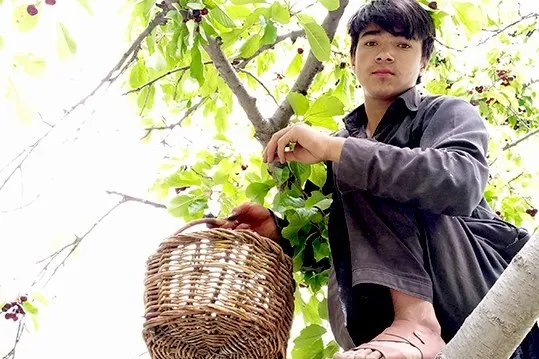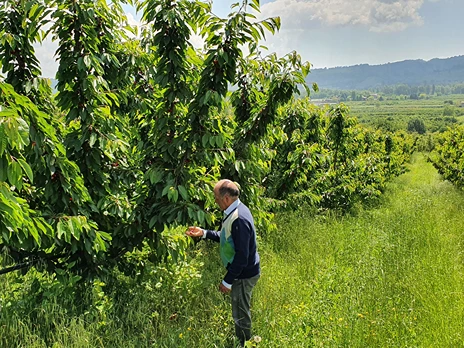Speaking with Redagrícola, Gabriel Amaro, president of the Association of Peruvian Agricultural Producers Corporations (Agap), stated that the country's agricultural development is ongoing and that the next step is to invest in high-value crops that until recently seemed unlikely to be produced, such as cherries.
He emphasized that what has happened over the past 20 years in Peruvian agriculture has been a "revolution" and argued that there wasn’t a single “starting point” but rather a combination of factors.
“I always say that the planets aligned. Something very difficult to achieve actually happened because it wasn’t a single factor that drove agriculture forward. You know it’s a very large, very complex sector, so it wasn’t just one factor, but several.”
The key factors, according to the union leader, were the constitutional reforms in the 1990s: “The issue of equal treatment for both domestic and foreign investments, legal security for land ownership... And one element that was totally disruptive: the Agricultural Promotion Law. Why disruptive? Because it was one of the few laws passed to develop an economic sector,” Amaro explains.
These measures placed Peru at the forefront of markets such as table grapes and blueberries, but what is the next step?
According to the Agap president, “there are already well-established products, such as grapes and asparagus, that need to continue evolving: new varieties for new market niches. And there are crops that are already emerging. One is pitahaya, for instance. There are others, like pecans, for which we are awaiting this week’s announcement of access to the Chinese market.
This is small-scale agriculture, so if the Chinese market opens up, there will be a pecan boom in Peru. It is a crop that lasts decades and, like all agriculture, requires regulatory conditions and long-term public policies to develop. But all eyes are on the cherry. Currently the main agricultural export of Chile, cherries are one of the obsessions of many Peruvian farmers who have been conducting trials to produce this fruit for years.
“Peru has the conditions, it has all the climates, it has inter-Andean valleys where cherries can develop. What do we need? First, market access, which we have already requested. Access to genetic material; we are asking for access to genetic material from the United States, for example, which we already have in Chile,” explains Amaro.
“Many producers are experimenting with cherries, so I’m sure that in the coming years, we will begin to compete in this crop,” he concludes. Will cherries become the new blueberries? “They could,” he says, though he also points out that “there are other crops under experimentation, such as raspberries, and we are evaluating persimmons.”
Source: Redagrícola
Image: Minuto Digital News
Cherry Times - All rights reserved










